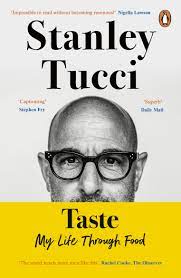My teaching friend Valerie on the North Carolina coast organized her summer school English class around food last year, inviting guest readers to share favorite food writing. I joined them by Zoom to read passages from Charles Frazier's Cold Mountain. I believe I chose Inman's cooking a bear cub he had hoped not to kill. I could have chosen the goat woman chapter.
Since that time, I continue to find great food writing I could have selected. A favorite book club nonfiction choice a few years ago was Blood, Bones & Butter by Gabrielle Hamilton. I wanted to visit her New York restaurant.Two food memoirs crossed my radar this year. I love Rick Bragg's writing, whether he is telling his own family tales or writing about Jerry Lee Lewis. I had his book The Best Cook in the World for awhile--waiting its turn--when my sister started raving about the audiobook. If there is anything that can improve on reading Bragg's writing, it's hearing him read it himself.
Going back at least three generations, he weaves stories and food throughout, noting that the two are rarely separate. Since his family lived along the Alabama-Georgia border and he is almost my age, the connections were palpable. The food he is describing is the food of my people. In many ways too, his people were much like my own. I might have finished listening sooner if I hadn't kept stopping rewinding and making whoever was around me listen to Bragg's singular delivery of his prose.
When I mentioned Bragg's book to reading friends, Tucci's food memoir invariably came up. I chose to listen to him read his story as well. The son of an Italian American family rooted in the Calabrian region, he describes in delicious detail the meals he enjoyed as a child (even explaining how the evening's meal ended up in his daily school lunch, which he sometimes exchanged for his classmate's sandwich of marshmallow creme on white bread.) He also describes his own cooking experience and favorite restaurants--so many out of business.
Tucci peoples his book not only with his parents and grandparents but he also introduces his children. His story includes his first wife's cancer death. He tells how he created a new blended family and moved to England with his second wife. He shares his own cancer ordeal, which threatened his life, his acting career, and his ability to enjoy food.
I know I'll end up adding a hard copy of Tucci's book to my library, but I'm not sure where it will go on my bookshelves. I may need a new section for food memoirs.









